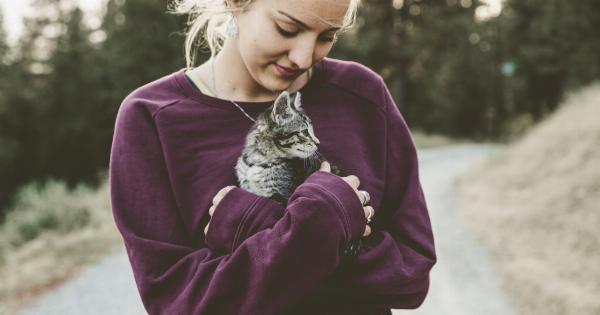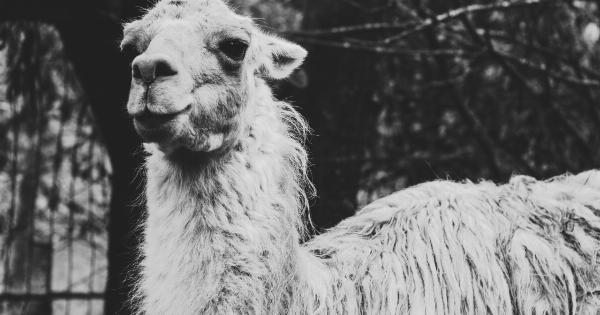Mindfulness is a crucial aspect of any healthy relationship, be it between humans or animals. When it comes to cubs, being mindful of their companions plays a significant role in their development and overall well-being.
Just like human children, cubs learn and grow by observing and interacting with others around them. By cultivating mindfulness, cubs can develop a sense of empathy, establish strong social connections, and thrive in their respective ecosystems.
Understanding Empathy in Cubs
Empathy is the ability to understand and share the feelings of another. While empathy is often associated with humans, many animal species, including cubs, also display empathetic behavior.
Young cubs are naturally curious and eager to explore their surroundings. However, they also rely on their companions for protection, nourishment, and social learning.
By being mindful of their companions, cubs can develop a deeper understanding of their needs, emotions, and experiences.
This understanding allows them to respond appropriately to their companions’ cues, ultimately strengthening their bond and fostering a harmonious relationship within their group.
The Benefits of Mindfulness in Cub Companionship
Mindfulness in cub companionship brings forth numerous benefits. Let’s explore some of the key advantages:.
1. Enhanced Social Learning
Through mindful observation, cubs can learn valuable social skills from their companions. They observe and imitate behaviors such as hunting techniques, communication signals, and hierarchical structures.
By actively paying attention to their companions’ actions and reactions, cubs can acquire essential survival knowledge and thrive in their natural habitats.
2. Emotional Resilience
When cubs are mindful of the emotions of their companions, they can better navigate social situations, conflicts, and challenges.
Understanding that different individuals may feel fear, anger, joy, or pain strengthens their ability to respond appropriately and adapt to changing circumstances.
3. Strengthened Bonds
Mindfulness helps foster strong bonds between cubs and their companions. Being aware of their companions’ needs and desires allows cubs to provide support and reassurance when necessary.
This sense of emotional connection and support promotes well-being and enhances the overall cohesion of the group.
4. Cooperation and Collaboration
Cubs are often part of a larger social group, such as a pack or a pride. Mindfulness promotes cooperation and collaboration within these groups, as cubs recognize the importance of working together toward common goals.
By being mindful of their companions’ strengths and weaknesses, cubs can allocate tasks effectively and optimize their chances of success.
5. Reduced Conflict
Mindfulness reduces the likelihood of conflicts among cubs and their companions. By being attuned to each other’s boundaries, needs, and signals, cubs can avoid misunderstandings and potential confrontations.
This harmony within their social group ensures a safe and nurturing environment for all members.
Developing Mindfulness in Cubs
The development of mindfulness in cubs begins at an early age. The following factors contribute to cultivating mindfulness:.
1. Observation and Imitation
Cubs learn through observing and imitating the behaviors of their companions. By paying close attention to their actions and interactions, cubs can grasp the intricacies of social dynamics, communication, and survival strategies.
This observational learning helps them become more responsive and adaptable in their daily lives.
2. Play and Exploration
Play serves as a crucial learning tool for cubs, where they can test their boundaries, practice social skills, and refine coordination.
Through play, cubs engage in experiential learning, learning how to interact with their companions in a safe and non-threatening environment. Encouraging play and exploration fosters a sense of curiosity and allows cubs to develop social bonds with their peers.
3. Nurturing and Guidance
Cubs rely on nurturing and guidance from their companions, particularly their parents or adult members of their group. Positive reinforcement, gentle corrections, and consistent guidance aid in the development of mindfulness.
Adult companions who display mindful behaviors serve as role models for the cubs, shaping their understanding of relationships and empathy.
4. Encouraging Emotional Expression
Cubs should be encouraged to express their emotions in a healthy and safe manner. By acknowledging and validating their emotions, companions help cubs develop emotional intelligence while promoting open and honest communication.
This emotional expression fosters an environment where cubs feel understood and accepted, leading to stronger companionship bonds.
5. Exposing Cubs to Diverse Companions
Exposure to a variety of companions helps cubs develop a broader perspective and a deeper understanding of different individuals.
Interacting with companions from various backgrounds and personalities allows cubs to adapt their behaviors and responses accordingly. This exposure encourages empathy and enhances their ability to connect with others within their ecosystem.
The Role of Mindful Companions
While it is essential for cubs to be mindful of their companions, the role of mindful adult companions is equally vital. Adult companions serve as guides, teachers, and protectors for cubs, contributing significantly to their overall development.
Mindful adult companions should:.
1. Be Patient and Attentive
Mindful adult companions must be patient and attentive to the needs of cubs. They should create a safe and nurturing environment where cubs can express themselves freely.
By actively listening and observing, adult companions can address any concerns or challenges that may arise during the cubs’ growth.
2. Model Mindful Behaviors
Adult companions must lead by example and exhibit mindful behaviors consistently. By practicing empathy, active listening, and emotional regulation, adult companions provide a valuable role model for the cubs.
The imitation and internalization of these behaviors encourage the development of mindfulness in the cubs.
3. Provide Opportunities for Social Interaction
Mindful adult companions should facilitate opportunities for social interaction and promote positive companionship among cubs. Group activities, such as hunting simulations or playful exercises, create a bonding experience between cubs.
This social interaction helps build trust, enhances communication, and strengthens the sense of belonging within the group.
4. Foster a Culture of Acceptance and Inclusion
Mindful adult companions should foster a culture of acceptance and inclusion, emphasizing the value of diversity within the group.
By celebrating individual differences and encouraging empathy, adult companions help cubs appreciate the unique strengths and qualities of their companions. This inclusive culture promotes a supportive and harmonious social environment.
5. Continuously Learn and Adapt
Mindful adult companions acknowledge that learning is an ongoing process. They continuously seek new ways to adapt to the changing needs and dynamics of the cubs.
By staying receptive to feedback and adjusting their behavior accordingly, adult companions provide a flexible and adaptive companionship for the growing cubs.
The Lasting Impact of Mindfulness in Cubs
Mindfulness in cub companionship has a lasting impact on their overall well-being and their ability to thrive within their ecosystems.
By fostering empathy, building strong social connections, and promoting harmonious relationships, mindfulness equips cubs with essential life skills for survival:.
1. Increased Adaptability
Mindful cubs display heightened adaptability to new environments, challenges, and social dynamics.
Their ability to observe, understand, and respond appropriately allows them to navigate various situations with ease, contributing to their long-term survival.
2. Improved Communication
Mindful cubs possess excellent communication skills, allowing them to effectively express their needs, intentions, and emotions.
This proficiency in communication strengthens their bonds with their companions, enabling collaborative efforts and reducing the likelihood of conflicts.
3. Stronger Leadership Skills
Mindful cubs often emerge as natural leaders within their group. Their ability to empathize, communicate, and adapt effectively makes them respected and trusted companions.
These strong leadership skills contribute to the overall cohesiveness and success of the group.
4. Enhanced Emotional Intelligence
Mindful cubs develop a high level of emotional intelligence, enabling them to navigate complex social dynamics with finesse.
Their empathy and understanding of others’ emotions make them more compassionate companions, ensuring a supportive and caring environment within their social group.
5. Thriving Social Bonds
Mindful cubs form deep and meaningful social bonds within their group, leading to a sense of belonging and security.
These strong social connections provide essential emotional support, enhance their chances of survival, and foster a cooperative and harmonious ecosystem.
Conclusion
Being mindful of their companions is a crucial aspect of a cub’s development. By cultivating mindfulness, cubs develop empathy, enhance their social connections, and acquire the necessary skills to thrive in their respective ecosystems.
Mindfulness offers numerous benefits, including enhanced social learning, emotional resilience, strengthened bonds, cooperation, collaboration, and reduced conflict. Adult companions play a pivotal role in fostering mindfulness in cubs by being patient, modeling mindful behaviors, providing social interaction opportunities, fostering acceptance, and continuously learning and adapting.
The lasting impact of mindfulness in cubs results in increased adaptability, improved communication, stronger leadership skills, enhanced emotional intelligence, and thriving social bonds. By prioritizing mindfulness in cub companionship, we can contribute to the well-being and success of the next generation of animals in the animal kingdom.






























